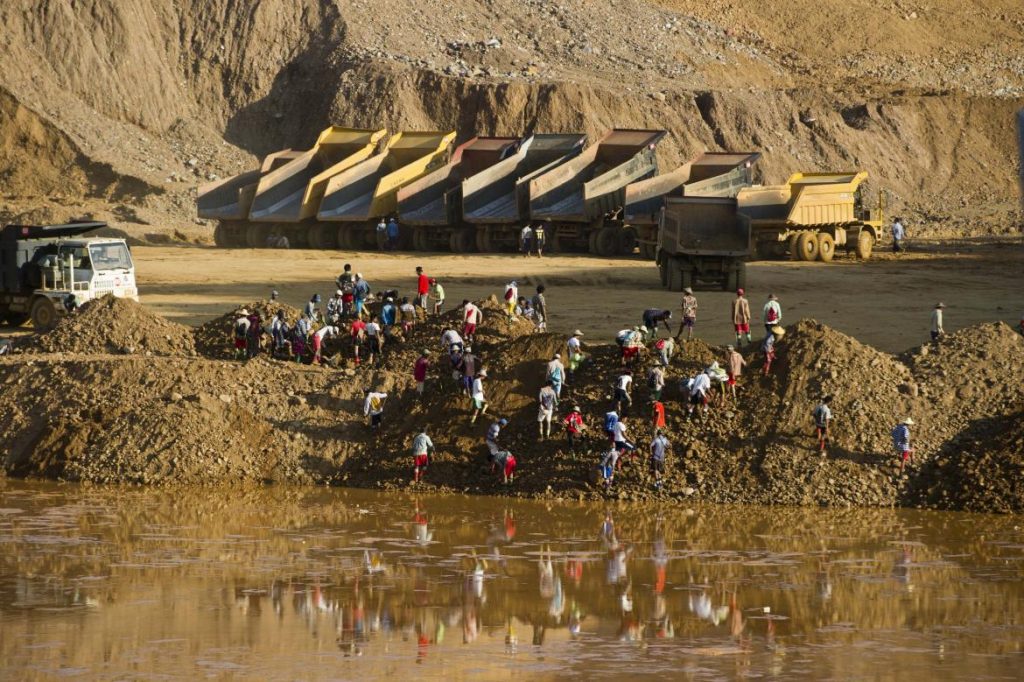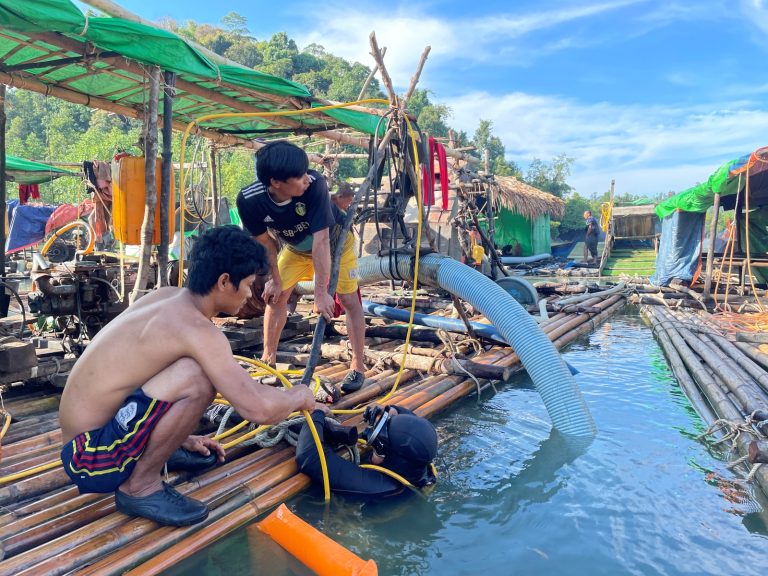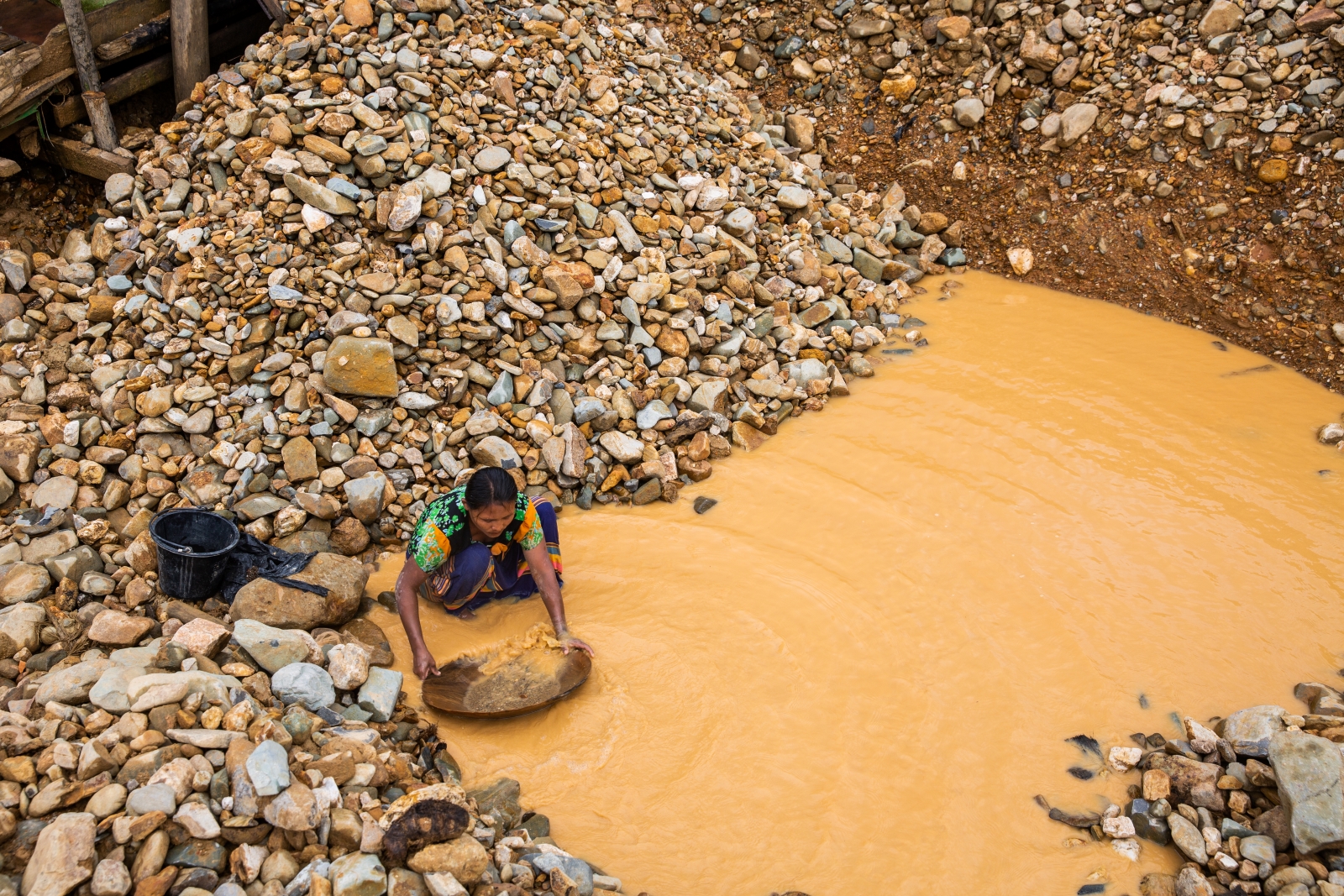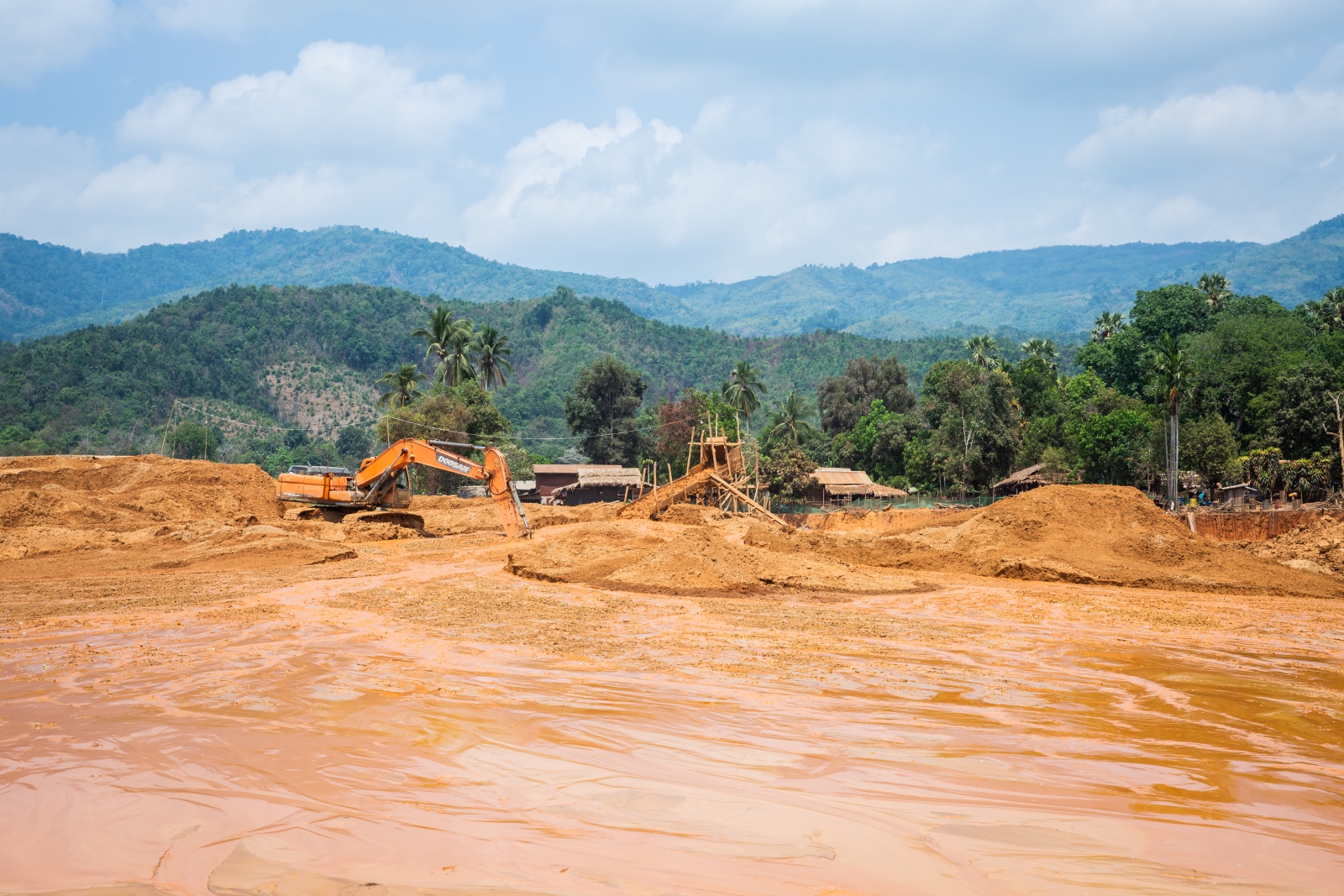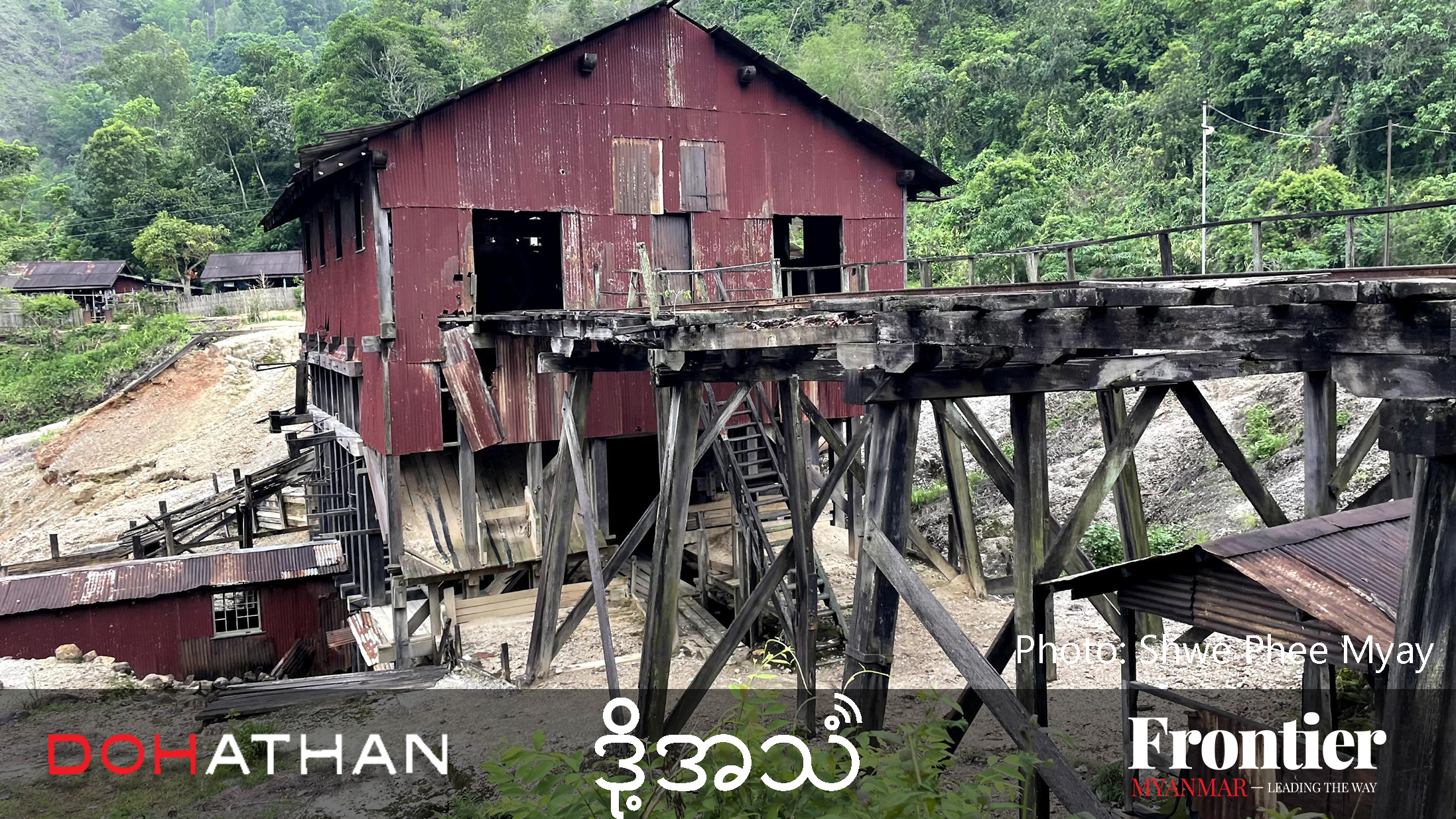More time is needed to draft a new Mines Law that prevents the human rights abuses seen in the past.
After three years of discussion, Myanmar’s 1994 Mines Law was finally amended in December 2015 – part of a rush of legislative approvals made as the sun set on the Union Solidarity and Development Party-led government.
Unfortunately, the amendments will do little to clean up Myanmar’s mining sector. In fact, they could contribute to additional human rights and environmental problems associated with exploitation of natural resources, especially in conflict-affected areas.
At the moment, mining projects are poorly regulated and the Mines Law is poorly enforced, in violation of Myanmar’s international obligations to protect against human rights abuse by business enterprises. The amendments do not address these serious shortcomings.
Myanmar’s weak regulatory governance creates an environment in which unscrupulous companies from neighbouring countries (as has been seen from Chinese and Thai investors) can maximize their profits at the expense of the wellbeing of the local population. This problem is aggravated by the fact that the Mines Law amendments grant state and regional governments more autonomy to approve small to medium size mines.
Current trends in the mining sector give every reason to doubt that local governments will be able to effectively regulate mining while the central government lacks adequate oversight and enforcement mechanisms.
Support more independent journalism like this. Sign up to be a Frontier member.
For example, tin production in the Wa controlled hills of Northern Shan State has recently exploded, due to a 4,900 percent rise in tin-concentrate exports from Myanmar to China between 2009 and 2014. This expansion has allowed Chinese refineries to increase tin production – tin ore shipped across the border for processing in Yunnan more than tripled in mid-2013 – and to plug a gap after new trading rules restricted Indonesia’s export of refined tin. There have been protests in Shan state against commercial mining operations that have reportedly damaged local waterways and farmlands, destroying farmers’ livelihoods.
Weak mining regulations in Myanmar have thus benefitted foreign investors, leaving the local population with few benefits relating to employment and development.
Without an adequate legal and regulatory framework governing health and safety in mining, and in the absence of clearer standards over land acquisition and compensation as well as labour and environmental issues, the operations of the Letpadaung copper mine in Sagaing Division have resulted in severe environmental damage and illegal land grabs. Operated by China’s Wanbao Mining, a subsidiary of state-run defence manufacturer Norinco, the joint venture’s lack of any real multi-stakeholder oversight and accountability explains their continued failure to secure a social license from affected communities.
In Karen National Union-controlled areas of Tanintharyi, the KNU allows Thai companies to operate and export coal across the border with little accountability or intervention from the Ministry of Mines. Local communities have demanded for the Ban Chaung coal mining project to be suspended pending a full environmental and social impact assessment, with the results fully disclosed, due to uncontrolled coal fires and toxic waste dumps that have led to loss of livelihoods and health problems. Without providing citizens the power to enforce the Mines Law in lieu of government action, it is unlikely that such situations will change in the near future.
The crude brutality of jade mining in Kachin was highlighted in November last year when more than 100 people died in a landslide of mining waste near Hpakant. Since then, there have been two more deadly landslides. Mining companies dispose of waste soil improperly and the government has been unwilling or unable to regulate their reckless operations.
As these examples illustrate, the Mining Law alone cannot address the problems with Myanmar’s mining sector. While a stronger legal framework could help hold malfeasant actors accountable and enforce rights-compliant mining practices, the amended law does not sufficiently incorporate existing legal safeguards, nor does it provide for effective penalties against those businesses who do violate the rules.
The amendments do not incorporate or reference the need to comply with the Environmental Conservation Law, Rules and Environmental Impact Assessment Procedure – specifically, that compliance with the EIA Procedure and obtaining an Environmental Compliance Certificate from the relevant ministry is a prerequisite for the issuance of some permits.
The amendments also fail to adequately address worker health and safety issues. The Myanmar Centre for Responsible Business has suggested that the Mines Rules ban all employment of children under 18 years in this hazardous industry, in keeping with Myanmar’s obligations as a party to the Convention of the Rights of the Child. Myanmar has also ratified the International Labour Organization’s Convention on Worst Forms of Child Labour.
The EIA Procedure specifically addresses indigenous people. Until Myanmar has promulgated its own specific procedures for projects that infringe on the rights of indigenous peoples, the procedure instructs that project proponents “shall adhere to international good practice on Involuntary Resettlement and Indigenous Peoples.”
As a blueprint for global best practice, the International Finance Corporation states that when indigenous peoples are at risk of being alienated from their historically connected lands, a project proponent must first obtain their free prior and informed consent.
The weakness of the regulatory framework is aggravated by the absence of realistic, effective deterrents. The amendments’ maximum fines for violations of the Law are too low to serve as deterrent or punishment for mining businesses: five million Kyat (US$4,000) for operating without a permit and only one million Kyat ($820) for environmental, health and safety violations. The law still provides for imprisonment as well; however, the absence of any actual examples of enforcement of this provision significantly diminishes its deterrent effect.
The Ministry of Mines has stated that the by-laws would be finalised under the authority of the incoming government. The current reshuffling of ministers and ministries makes it unlikely that the new Mines Rules will be finalised within the originally designated 90-day period following the amendments. This delay presents a vital opportunity to strengthen the legal framework for mining.
The relevant ministries and the NLD government should use this time to increase protections for human rights and the environment, by ensuring that people in Myanmar have a means available to enforce the provisions in the Mines Law and its supporting rules. It is imperative that Myanmar legislates and regulates effectively to ensure that business enterprises fulfill their responsibility to respect human rights and the environment. Too many lives have been lost and too much of the environment has been destroyed for the present situation to continue.


